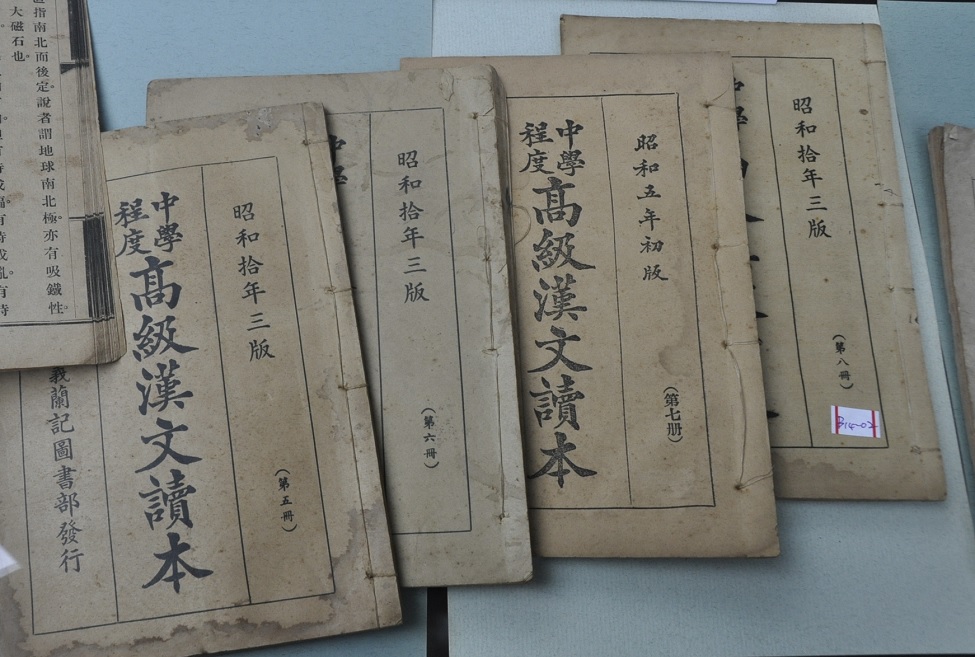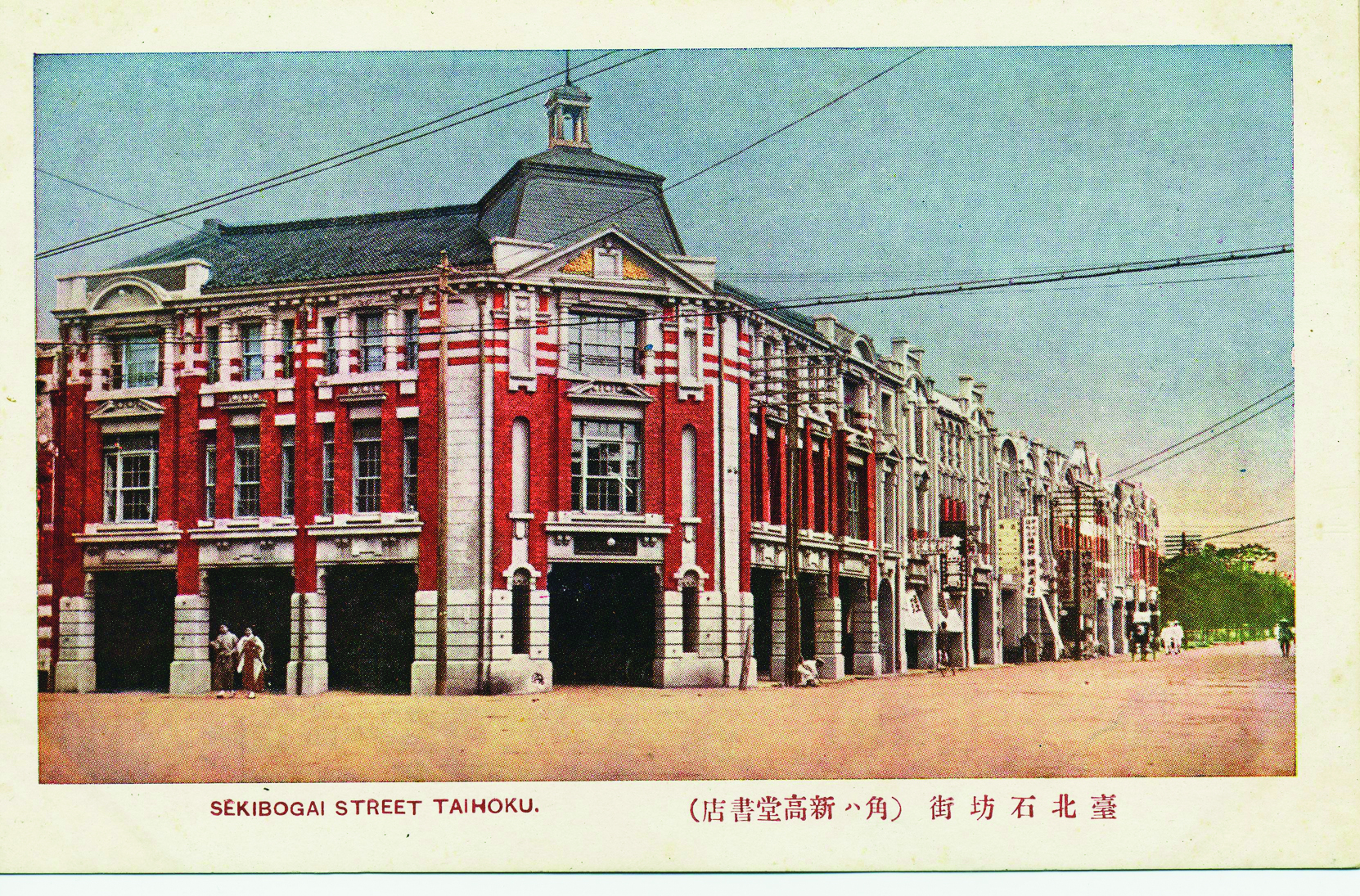I mentioned in the previous post that according to a website about independent bookstores in Taiwan, in 1927 there were only about 30 bookstores in Taiwan. Central Bookstore (中央書局) opened in Taichung in 1927, Lien Heng's Yatang Bookstore (雅堂書局) in Taipei the same year. (Lien's bookstore only ran for two years before it had to close down.) Chiang Wei-shui's Culture Bookstore (文化書局) had opened a year before in Taipei. Huang Mao-sheng's Lan-chi Bookstore (蘭記書局) opened in Chia-I in 1917. These bookstores focused mainly on selling (and in some cases publishing) Chinese-language books. As Chen Hsiang-lan writes in an article about the 100th anniversary of the Lan-chi Bookstore, owner Huang Mao-sheng took considerable risks to publish and sell Chinese-language books during the Japanese period. As with the bookstores run by Lien Heng and Chiang Wei-shui, Huang's bookstore/publishing venture was primarily concerned with passing on knowledge of Chinese culture and language, as can be seen from the picture below of some of the Chinese textbooks published by Lan-chi Bookstore. Another article published in 2017 recommends a book about the history of the store: 《記憶裡的幽香——嘉義蘭記書局史料文集百年紀念版》.
Source: 「百年蘭記書局 曾經是嘉義精神地標」
Somewhat confusingly, a 2020 Taiwan News article describes the reopening of "Taiwan's oldest bookstore," but that bookstore isn't Lan-chi or the Japanese bookstore I'll discuss below. It's the Regent Store (瑞成書局), which the authors say opened in 1912 and is the oldest bookstore in Taiwan that is still operating. The store's website has a video (in Taiwanese and Mandarin) telling the store's story.
This is what I've found (so far) about five of the Chinese language bookstores in colonial Taiwan. There were also of course Japanese bookstores. Hui-yu Caroline Ts'ai's 2013 article "Diaries and Everyday Life in Colonial Taiwan" in part describes colonial bureaucrat Utsumi Chūji's (內海忠司) preference for a bookstore in Taipei called Niitakadō Bookstore (新高堂), which she describes as "the largest bookstore in Taiwan" (p. 152).
Source:「〈臺北城中故事〉府前街與新高堂:村崎長昶的生意人生」
According to Ts'ai,
Niitakadō was also well known for issuing textbooks, reference tools, photograph collections, postcards, maps, and many other items. His [Utsumi's] taste for books also reflected an aspect of the marketing strategy of books, which was developed to cater to the growing needs of Japanese communities in Taiwan. An expanding readership on the island - across race and generation - was constructing "Taiwan" as a subject of Japan's empire. (p. 152)
Ts'ai writes that Niitakadō was built in 1912, but this article claims it was founded in 1898 by Murasaki Chōei (村崎長昶). This article by Su Shuo-bin (蘇碩斌) and Lin Yueh-hsien (林月先) agrees, explaining that the original stationery store became a bookstore (renamed 新高堂書店) in 1900. According to Su and Lin, what instigated the explosive growth of Murasaki's business was the excitement in Taiwan (presumably among the Japanese residents, but possibly also among the Taiwanese) about the Russian-Japanese war. The sale of magazines about the war led to the sale of books, and Murasaki's bookstore grew more and more profitable.
Su and Lin mention three other bookstores that opened around 1898 in the same area of Taipei: the Namiki Bookstore (並木書店), the Taiyōdō Bookstore (太陽堂書店), and the Shirotani Bookstore (城谷書店).* All three of these stores went out of business, though, for various reasons, though other stores moved in. Su and Lin note that Murasaki was fairly conservative in his selection of what kinds of books to sell; he didn't want to get on the bad side of the government. Niitakadō took over the business of supplying elementary school textbooks and also took over the book purchasing for Taipei Imperial University, Taipei University, and Medical College, and dominated the textbook market in Taiwan. (Su and Lin's article is an interesting read, and I highly recommend it. It's an excerpt from a history of Taipei: 《臺北城中故事:重慶南路街區歷史散步》.)
I also found pictures of the 太陽號書店 [Taiyōgo] bookstore, pictured below. According to an article from 2015, it later became the Taiwan Commercial Press (臺灣商務印書館), but that has moved away from its original location.
Source: 臺灣舊照片資料庫
Here is a picture of the interior of the store:
Source: 臺灣舊照片資料庫
I'm going to end this here. I hope the links to the other sources are useful! My apologies if I didn't mention your favorite bookstore from the Japanese colonial era! Let me know about it in the comments!
*Please correct my romanization of the Japanese names of these stores if they're wrong.




No comments:
Post a Comment